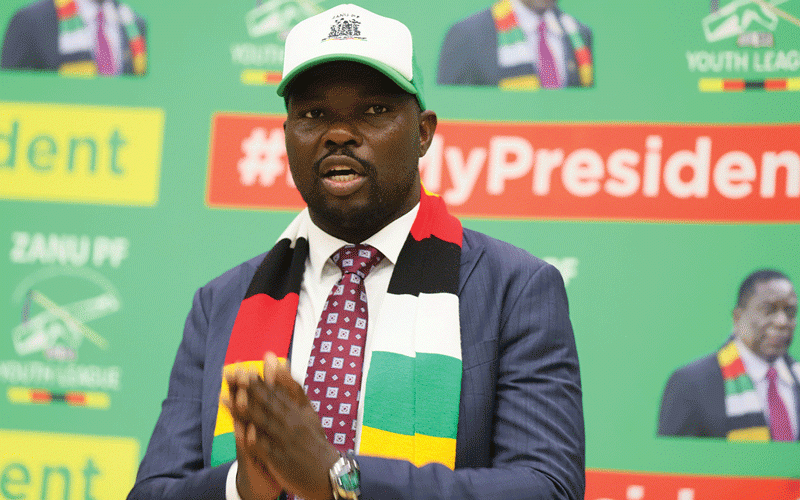
YOUTH Development, Empowerment and Vocational Training minister Tino Machakaire has come under fire after publicly criticising the government’s failure to address the deplorable state of public hospitals — a government he serves.
On Monday, Machakaire appeared to break ranks as he voiced frustration over the condition of the country’s health system, speaking directly to President Emmerson Mnangagwa.
His bold remarks have sparked backlash, particularly among ruling party loyalists on social media, who accuse him of betraying party unity for stating what many Zimbabweans have long known and endured.
Mnangagwa has had limited engagement with public health institutions.
His most notable visit to Parirenyatwa Group of Hospitals was on August 9, 2023, when he commissioned the “phase one delivery of vital healthcare equipment,” including MRI machines and ambulances.
The only other time he was near the country’s biggest referral hospital was on October 22, 2014, when as Justice, Legal and Parliamentary Affairs minister his Mercedes-Benz vehicle was rammed on the driver’s side by a staff bus belonging to the hospital.
The accident occurred along Herbert Chitepo Avenue in Harare.
Now, a section of Zanu PF social media storm troopers have drawn daggers and are metaphorically stabbing the youthful minister.
- Corruption Watch: Get scared, 2023 is coming
- Corruption Watch: Get scared, 2023 is coming
- Letters: Ensuring Africa’s food security through availability of quality seeds
- Is military's involvement in politics compatible with democracy?
Keep Reading
Machakaire’s recent comments, while seemingly well-intentioned, have left many sceptical.
Critics question whether his concern is genuine or merely sparked by a personal experience — after a relative was recently admitted to a public hospital.
For years, ordinary Zimbabweans have endured the collapse of the public healthcare system, often having to buy basic medication, food and even water for their hospitalised loved ones.
Machakaire should not hoodwink us into believing that he is sympathetic with the masses.
Did it, all of a sudden, occur to him that the country’s public hospitals are beyond a sorry state?
Now that his relative is a patient at one of the hospitals where he visited and saw for himself what we have been screaming about everyday, he wants the public to be on his side, never!
We expect ministers to visit our public hospitals frequently just to have an appreciation of what the masses are experiencing — do they?
Many ask: Why has Machakaire remained silent until now?
He has been in government long enough to be aware of the health sector’s decline, yet he never raised the issue in Cabinet or Parliament.
When local non-governmental organisations appeal for increased health funding, the government routinely ignores them, prioritising vehicle allowances and benefits for chiefs, senior civil servants and judges instead.
In the run-up to the 2023 elections, top officials — including Machakaire — received substantial government loans and perks, even as hospitals crumbled.
This makes his recent outrage feel less like leadership and more like opportunism.
Had these concerns been voiced by former Cabinet minister Olivia Muchena — widely known for her candour during the 2008-2009 crisis — they might have carried some weight.
Likewise, late former President Robert Mugabe’s frequent visits to Parirenyatwa where his sister Bridget was in coma for four years offered a more grounded understanding of the health sector’s state, although she reportedly received preferential care.
Ironically, the same healthcare crisis was highlighted on the front page of NewsDay on October 11, 2019, under the headline Zim health crisis deepens.
A widely circulated photo from that time shows businessman Kudakwashe Tagwireyi holding a copy of that edition, seated next to Machakaire, a man now hailed for voicing out against the soft genocide that is happening in our public hospitals.
Minister Machakaire’s sudden change of heart may be a step in the right direction — but it comes too late for many.
Zimbabweans have long been aware of the suffering experienced in public hospitals. They live it everyday.






